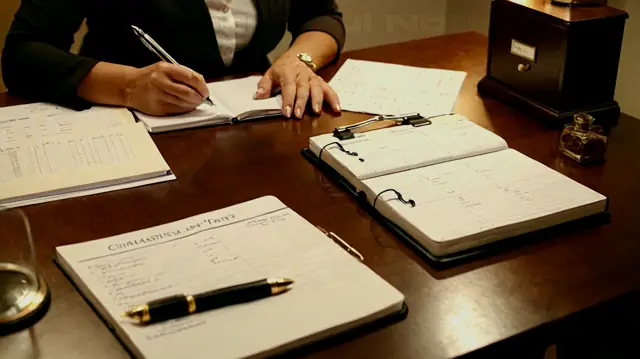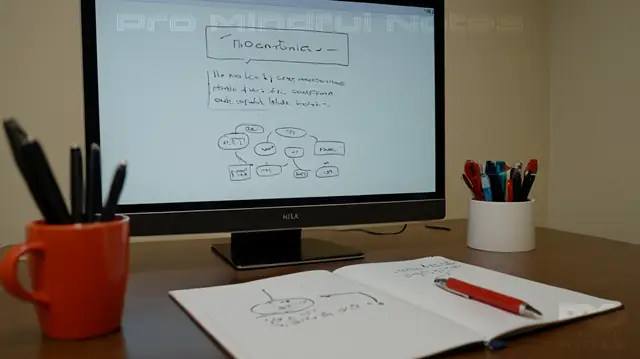Efficient Therapy Note-taking Strategies for Improved Patient Care

In this article, we will delve into the importance and significance of therapeutic notes for mental health professionals. These notes serve as a vital record of each therapy session note, allowing therapists to track patient progress, monitor treatment effectiveness, and refine their approach over time. We will explore the different types of therapist notes, including progress notes for therapy and psychoanalyst notes, which require distinct approaches to ensure accurate recording of critical information.
As we examine the art of writing therapy session notes, we'll provide practical tips on how to write therapeutic progress notes that are concise, organized, and informative. These strategies will empower mental health professionals with the skills to effectively document patient interactions, ensuring that all necessary details are captured without sacrificing clarity or brevity. Furthermore, our discussion will cover essential guidelines for maintaining confidentiality and security of these sensitive records, as mandated by HIPAA regulations.
- The Importance of Therapy Notes
- Progress Notes vs. Psychotherapy Notes
- Tips for Writing Effective Therapy Notes
- Use Templates and Examples
- Keep it Concise and Organized
- Prioritize Patient Confidentiality
- Managing Multiple Patients and Sessions
- Technology Tools for Enhanced Note-taking
- Conclusion
- Video about Efficient Therapy Note-taking Strategies for Improved Patient Care
The Importance of Therapy Notes
Writing therapeutic notes is an essential part of any mental health professional's practice. As a therapist, taking accurate and detailed therapist notes during each therapy session allows for effective tracking of patient progress and adjustment of treatment plans as needed. This process also enables the therapist to maintain a thorough record of their work with patients, which can be invaluable in the event of a client's unexpected change or a need to refer them to another professional.
In particular, keeping progress notes for therapy helps therapists stay organized and focused on their client's progress over time. By regularly reviewing these notes, therapists can identify patterns and themes that emerge during treatment, which can inform their approach and guide future sessions. Moreover, maintaining accurate and detailed therapy session notes provides a clear picture of each patient's unique situation, allowing the therapist to tailor their interventions more effectively.
When it comes to writing how to write therapeutic progress notes, many therapists may wonder where to begin. The key is to establish a consistent format for your therapist notes, one that allows you to efficiently capture the essential information about each client's session. By using a template or framework, you can ensure that your notes are comprehensive, yet concise and easy to review. Additionally, making sure to prioritize patient confidentiality and adhering to HIPAA guidelines ensures that your therapy note is both private and secure.
Overall, taking the time to write thoughtful and detailed therapist notes is crucial for delivering high-quality care to clients. By adopting a few simple strategies and establishing a consistent approach to writing psychologist notes, you can streamline your documentation process while maintaining the highest level of professionalism and patient care.
Progress Notes vs. Psychotherapy Notes

In the world of mental health, therapists rely heavily on therapeutic notes to document patient progress and treatment plans. Two types of notes are commonly used: progress notes for therapy and psychotherapy notes. While both types of notes serve a purpose in maintaining accurate records, they differ significantly in terms of their content, purpose, and confidentiality.
Progress notes for therapy, also referred to as treatment summary notes or session notes, document the progress made during each therapy session. These notes are used to inform other healthcare providers, insurance companies, and patients about the patient's treatment plan, goals, and current status. In contrast, psychotherapy notes are private records written by therapists for their own personal use. These notes are meant to help therapists prepare for future sessions, make detailed hypotheses about a patient's situation, and explore complex therapeutic concepts.
When writing therapist notes, it is essential to keep them concise, organized, and efficient. Using templates or examples can help guide the writing process. For instance, you might use a template that includes sections for summarizing progress made during each therapy session, as well as any notable events, insights, or breakthroughs. By maintaining accurate and detailed therapy session notes, therapists can effectively track patient progress over time and adjust treatment plans as needed.
Tips for Writing Effective Therapy Notes

When it comes to therapeutic notes, clear and concise writing is key. To ensure that your therapist notes are effective, try using a template or framework to guide your writing process. This can help you stay organized and focused as you document each therapy session note. Start by including the date, patient's name, and a brief summary of the progress notes for therapy. Then, focus on the main points discussed during the session, highlighting any significant changes or developments.
When it comes to how to write therapeutic progress notes, the goal is to provide a detailed yet concise account of each session. This means focusing on the most important information and leaving out unnecessary details. To make the process even more efficient, try using headings or subheadings to break up your therapy note into sections. For example, you might have separate sections for "Goals," "Interventions," and "Outcomes." This will help you keep track of your patient's progress over time and enable you to identify patterns or themes that can inform future sessions.
Another key aspect of writing effective therapy notes is maintaining confidentiality and privacy. Remember that these records are considered psychotherapist notes, which means they must be kept separate from other medical records and only accessible to authorized individuals, as per HIPAA regulations. By keeping your psychologist note private and secure, you can ensure that your Patient's trust in you remains intact.
When it comes to writing therapy notes, there is no one-size-fits-all approach. The most important thing is finding a system that works for you and your practice. Whether you prefer writing by hand or typing on a computer, the key is to find what helps you stay organized and focused. By following these tips and using your own judgment and discretion, you can create therapy session notes that are both detailed and concise.
Use Templates and Examples

When it comes to writing therapeutic notes, having a clear structure and template can be incredibly helpful in keeping your documentation organized and efficient. By using templates and examples, you can ensure that your therapist note or therapy session notes cover all the necessary information, including details about the patient's progress, goals, and treatment plans.
For example, you can use a template for writing progress notes for therapy, which typically include sections for summarizing the current state of the patient's symptoms, describing any notable events or insights that occurred during the session, and outlining the next steps in treatment. By having a pre-designed format to follow, you can avoid leaving important information out and make it easier to compare progress from one session to another.
When learning how to write therapeutic progress notes, it can be helpful to start by reviewing examples of well-written therapy note or psychologist note. Look for templates or samples online that are specific to your profession, such as psychologist notes or therapist notes. Pay attention to how the writer organizes their thoughts and what information they include in each section. This can help you develop a sense of what works best for you and give you ideas for incorporating these strategies into your own writing therapy notes.
Keep it Concise and Organized
When writing therapeutic notes, it's essential to keep them concise and organized to ensure that you're providing accurate and effective documentation of patient progress. A well-organized note allows you to quickly scan and reference specific information, making it easier to identify patterns, track progress, and make informed decisions about future treatment plans.
To write an effective therapist note, start by structuring your note around the key elements: date, patient's name, session number, and a brief summary of the session. Within this framework, organize your thoughts chronologically, starting with the most important information and moving on to less significant details. This approach will help you maintain focus and avoid cluttering your notes with unnecessary information.
When writing progress notes for therapy, consider using headings or subheadings to break up your note into manageable sections. For example, you might have a section dedicated to summarizing the patient's current situation, another for discussing specific treatment goals, and another for outlining any new strategies or insights gained during the session. By structuring your therapy session notes in this way, you'll be able to quickly locate important information and develop a clear understanding of how each session contributes to overall patient progress.
By incorporating these tips into your approach to writing how to write therapeutic progress notes, you'll be well on your way to creating comprehensive and useful notes that support informed decision-making and high-quality patient care. Remember, the key to effective note-taking is balance – find a system that works for you and stick to it, and you'll be well-equipped to produce therapy notes that are both informative and easy to follow.
Prioritize Patient Confidentiality
As mental health professionals, we understand the importance of maintaining patient confidentiality when writing therapeutic notes or progress notes for therapy. The Health Insurance Portability and Accountability Act (HIPAA) regulates the handling of protected health information, emphasizing the need for therapists to safeguard their Patient's privacy. In this digital age, it is crucial to keep sensitive patient data secure by storing therapy session notes, therapist notes, or psychologist notes in a designated electronic health record (EHR) system.
When writing how to write therapeutic progress notes or what is therapy notes, it is essential to maintain a high level of confidentiality. This requires using secure online platforms, encrypting documents, and ensuring that only authorized personnel have access to the information. As professionals, we must adhere to strict standards for storing, transmitting, and disposing of patient records to prevent unauthorized disclosure.
When writing therapy note, it is vital to prioritize patient privacy by avoiding any sensitive or identifying information in your documentation. This includes omitting names, dates of birth, or medical identifiers from the notes. If you need to include specific details about a patient's condition or treatment plan, ensure that this information is only accessible to those who have a legitimate need to know. By following these guidelines, we can maintain the trust and confidence our patients place in us while providing top-notch care.
Managing Multiple Patients and Sessions
As a mental health professional, managing multiple patients and sessions can be a daunting task. Keeping track of each patient's progress and treatment plan requires therapeutic notes that are concise, yet thorough. Effective note-taking is crucial in ensuring that you're providing the best possible care for your clients. One way to manage multiple patients and sessions is by using a template or format for writing therapist notes. This helps ensure that all necessary information is included, such as the patient's symptoms, treatment goals, and progress towards those goals.
When writing progress notes for therapy, it's essential to include key details about each session, including the date, time, and main topics discussed. You should also summarize any notable events or insights that occurred during the session. Additionally, consider using a system of symbols or abbreviations to quickly identify important information, such as medications or treatment plans. This can help you locate specific information in your therapy session notes quickly and efficiently.
To make writing therapist notes even easier, consider setting aside a few minutes after each session to summarize the key points. You can also use technology, such as note-taking apps or digital journals, to streamline the process. By developing a consistent method for writing therapy note, you'll be able to focus on providing quality care to your patients without worrying about the administrative tasks involved. Remember that keeping accurate and thorough psychologist notes is essential in maintaining confidentiality and ensuring that patients receive the best possible treatment.
Technology Tools for Enhanced Note-taking
In today's digital age, therapists can leverage various technology tools to streamline their note-taking process, leading to more accurate and efficient therapy notes. One popular option is note-taking apps like Evernote or Simplenote, which allow therapists to organize their thoughts and ideas across multiple devices. These apps enable seamless access to therapist notes, making it easy to refer back to previous sessions or share with colleagues.
Another innovative tool is digital audio recorders, such as Otter or Temi, which can be used to capture therapy session notes in real-time. By simply speaking into the device, therapists can quickly document key points and insights from each session, without having to worry about typing out lengthy entries. This technology can also help reduce transcription errors and save valuable time that would otherwise be spent writing progress notes for therapy.
For those who prefer a more traditional approach, electronic health record (EHR) systems like Cerner or Epic provide an organized space to store and access therapist session notes, therapy notes, and other relevant patient information. These platforms often include features such as templates and reminders, which can help streamline the note-taking process and ensure that all necessary information is included in each entry. By adopting these technology tools, therapists can focus on delivering high-quality care while maintaining accurate and comprehensive psychotherapist notes.
Conclusion

Writing effective therapist notes is an essential part of providing quality patient care in mental health settings. By adopting efficient strategies for documenting therapy session notes, therapists can improve patient outcomes, reduce errors, and enhance overall practice performance. Progress notes for therapy play a crucial role in this process, serving as a tool for therapists to track patient progress, adjust treatment plans, and communicate with other healthcare providers.
When it comes to writing therapy notes, there is no one-size-fits-all approach. Instead, therapists should focus on developing a system that works best for them, incorporating techniques such as using templates, summarizing key points, and maintaining a consistent format. By mastering the art of writing therapist notes, psychologists can ensure that their patients receive the best possible care while also meeting regulatory requirements and maintaining confidentiality.
In addition to the benefits listed above, keeping accurate and organized therapy note records can also help therapists reflect on their practice and identify areas for improvement. For instance, reviewing psychotherapy notes can facilitate a deeper understanding of patient dynamics, treatment efficacy, and areas where therapy may be falling short. By embracing the importance of writing therapy notes, psychologists can elevate the quality of care they provide to their patients, ultimately leading to more successful outcomes and satisfied clients.
Video about Efficient Therapy Note-taking Strategies for Improved Patient Care
Leave a Reply


Related Posts